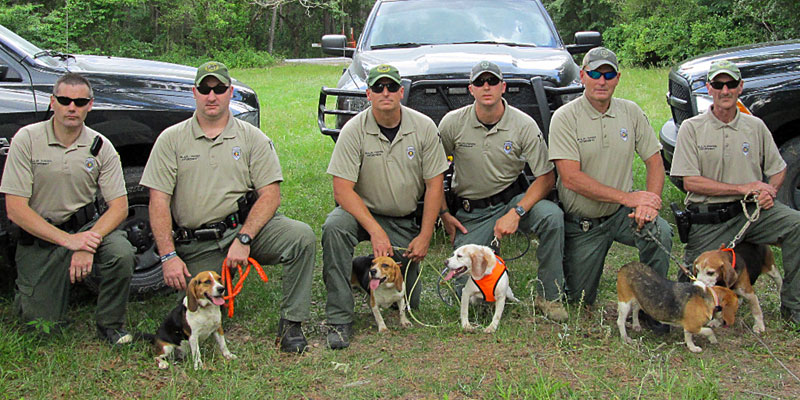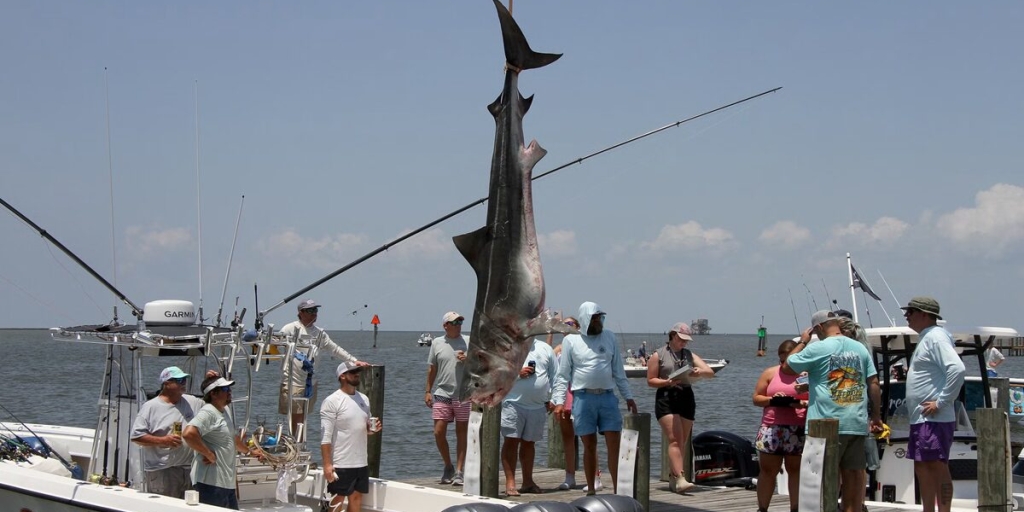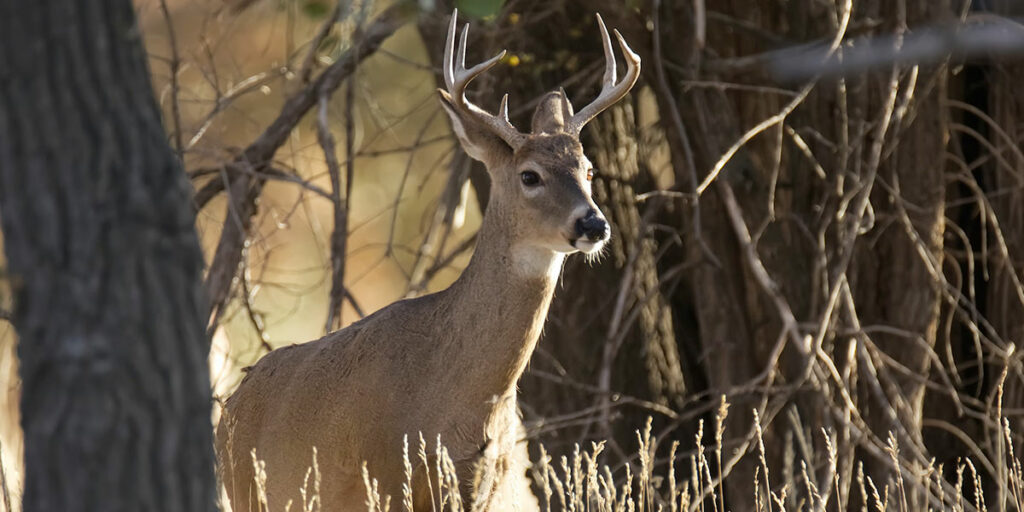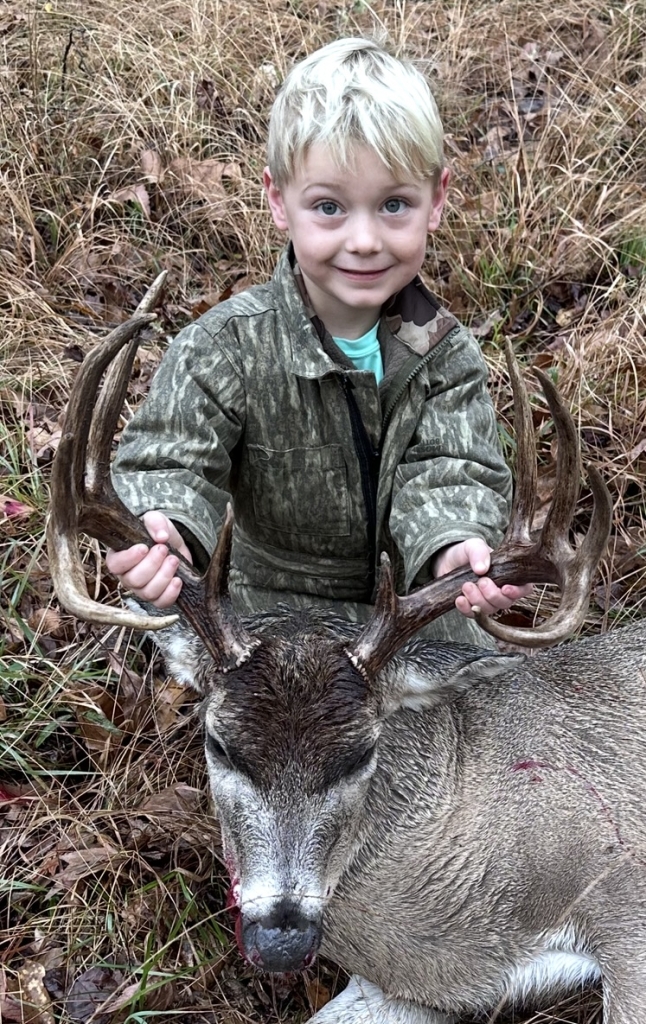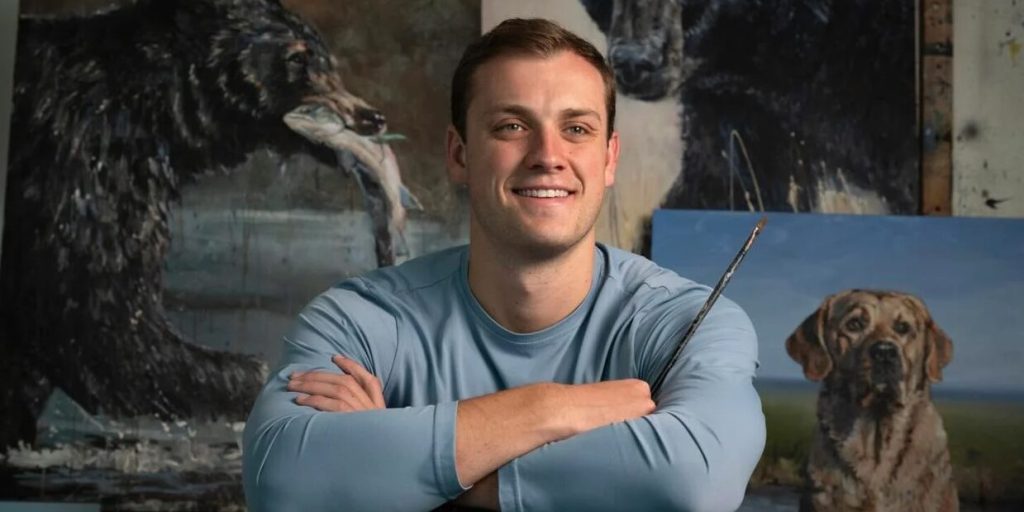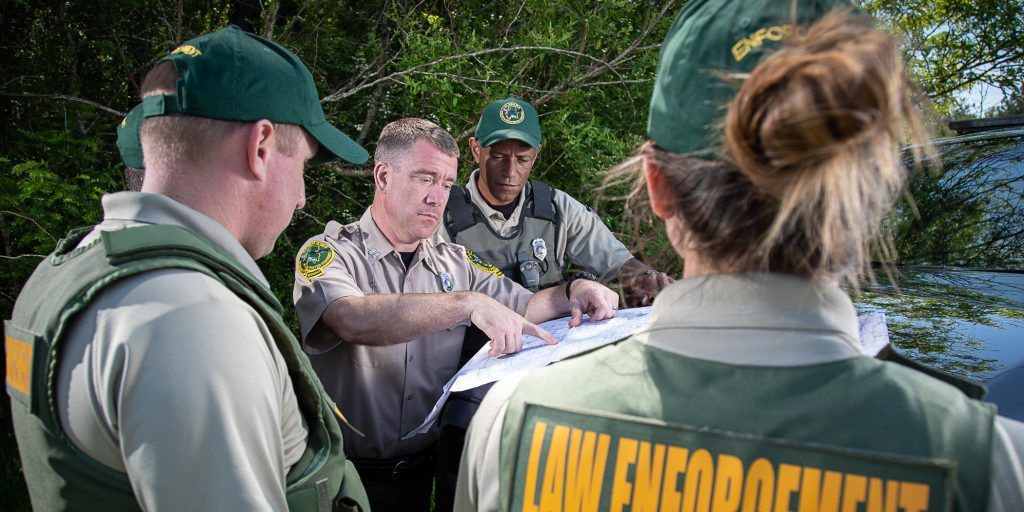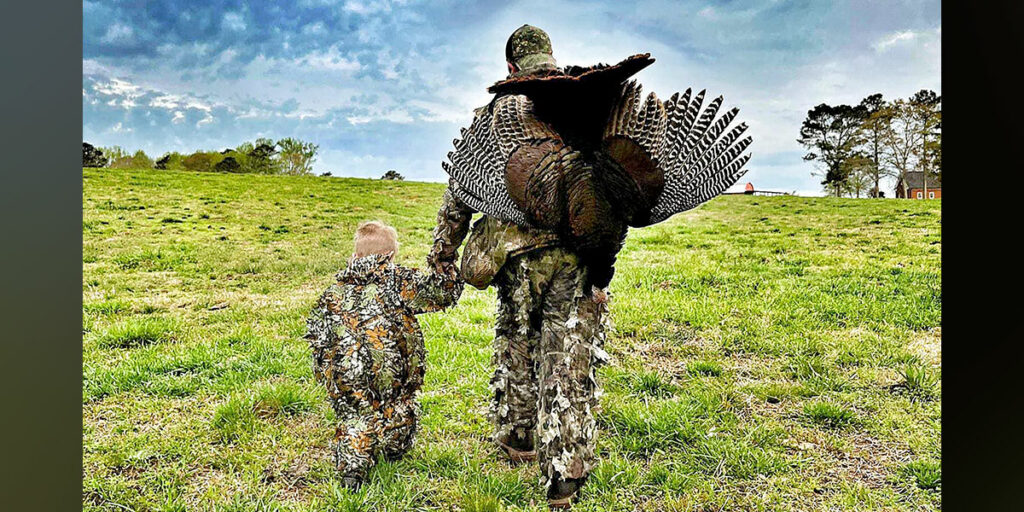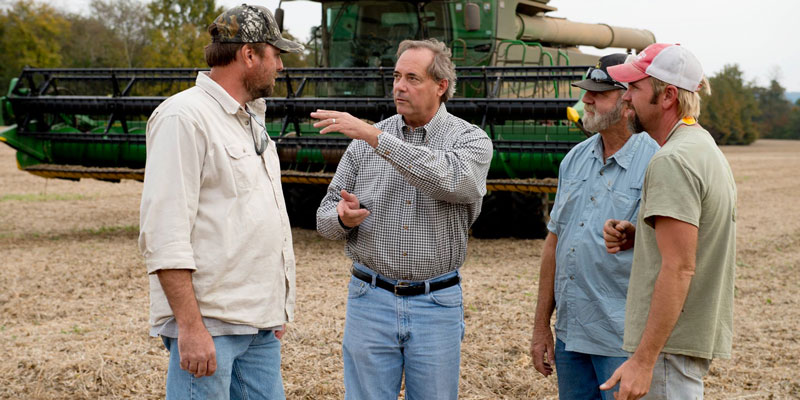One turkey hunter was extremely grateful that the Alabama Wildlife and Freshwater Fisheries (WFF) Law Enforcement Section has a K9 unit, although there is little public awareness of this enforcement asset.
Of course, the reason few people have heard about it is this K9 unit does not fit the stereotype of large, aggressive dogs trained to bite and take down a suspect.
Nope, the WFF K9 dogs are far, far more likely to lick you than anything else. This K9 unit consists of the loveable beagle breed that uses its nose and tracking abilities to aid the WFF’s Conservation Enforcement Officers (CEOs).
Early in the 2019 spring season, CEO Ben Kiser received a call about an overdue turkey hunter. Kiser loaded up his beagle, Luke, and headed out into rural Calhoun County.
“I just got a call about a lost turkey hunter,” Kiser said. “It turned into a medical emergency because he was diabetic. He had an episode. He got lost and fell and lost his gun.”
Kiser said most of the time when hunters get lost, he can get a cell phone number from the family, call the number and get clues where they might be found. To pinpoint the location, sometimes Kiser gets the lost hunter to fire a shot. He didn’t have that option this spring.
“I found his truck and deployed Luke on his tracks,” Kiser said. “Luke followed the trail a little over a mile and walked right up on the hunter. He was in a location where the ambulance couldn’t travel. He was somewhat coherent, but I basically dragged him out of the woods and got him in my truck. We met his family back at the main road, and they took him to the hospital. He recovered fully from what I understand. Without the dog, I would have had a hard time locating the hunter. It’s an area on the edge of a national forest where cell service is very limited. In the past, it’s taken hours to find people. I’ve worked cases like this both with and without a dog. This incident went extremely well, extremely fast, and it was all because of the dog. I can’t say he would have died. But he had his best shot to make it because of the dog.”
Kiser said that was the first time he has used Luke to find a hunter in distress, but the beagle has been used in many of the CEO’s normal duties as well as in assisting local law enforcement in searching for suspects. Luke has made cases for illegal baiting of game and fishing on private property without permission. He’s also helped locate a turkey hunter poaching on property he didn’t have permission to hunt.
“Luke tracked that turkey hunter right up to his blind,” Kiser said.
WFF Assistant Chief of Enforcement Chris Lewis said the K9 program started in 2012. CEO Brad Gavins talked to officers at the Department of Corrections about the tracking dogs used to find escaped prisoners. When Corrections offered to give WFF one of their dogs to try, Gavins got permission and quickly accepted.
“There was some concern about liability, but our beagles just lick people and try to find people so they can get a peanut butter sandwich,” Lewis said. “That’s their reward. That’s how they were trained.”
Gavins worked his dog, Taz, for a couple of years and proved the concept works well. Lewis said the Department of Corrections was generous enough to give WFF several dogs that were not suitable for tracking escapees.
“We prefer dogs that don’t bark because we don’t want to announce our presence,” Lewis said. “Corrections is hunting armed felons or escapees in dangerous situations. So, they turn loose a whole pack of dogs that bark. They work as a team to drive that person. By the time they get there, they want those dogs to run that person to where there’s no fight left in them. We want dogs that are good, strong trackers that can work independently and don’t bark. That’s a rare commodity. When Corrections sends us a dog that’s a strong tracker that doesn’t bark, that’s huge for us. These are well-seasoned, very capable dogs. Our people then go to Corrections for handler training. The dogs know what to do. We’re just training the people to learn how to handle and read the dogs.”
Jonathan Howard has a K9 in District 5, while Jason McHenry and Cliff Quinn both have dogs in District 3. Kiser is in District 2, and Gavin is in District 4. Lewis said the next dog available from Corrections will go to District 1.
Gavins recalled one of the early incidents where his dog proved its worth. Coffee County CEO Jason Sutherland was working a complaint when he spotted someone parked in a field.
“The lady in the vehicle said she was arrowhead hunting, but Jason found two sets of tracks,” Gavins said. “He discovered the other set of tracks was from her companion, who was notorious for running afoul of the law. Jason suspected that her companion was poaching.”
Gavins got a call to head over with his dog, which picked up the scent at the vehicle and followed it through the woods for several miles.
“We found where he had squatted down,” he said. “We found an empty cartridge where he shot at a deer.”
The dog tracked to the edge of the road where the suspect had ditched a shotgun and rifle. When confronted with the enormous evidence, the suspect confessed.
“It wound up being a good case that we would have never done anything with without the dog,” Gavins said. “I’ve used the dog to track turkey poachers. Some people will get permission to hunt 10 or 20 acres, a place to park their trucks, and then go to wherever the turkey gobbles. We’ve been able use the dogs to track the hunters to where they sat next to a tree or find feathers where they shot a turkey. I think on one case, the hunter had crossed through three different properties, and we were able to enter that into evidence.”
Another incident happened in Russell County where a hunter witnessed a poacher firing at a deer from a climbing treestand. Gavins was called by CEO Mark Jolly, and they set the dog on the tracks as close as they could. The beagle quickly picked up the track and led them straight to a dead doe, followed by a huge, 11-point buck.
“We backtracked across a pasture, through a fence and up to a house,” Gavins said. “Just before we got to the house, we found the gun hidden in a hay bale.”
After securing the scene, a search warrant was issued, and the officers found even more evidence, which resulted in a conviction.
Gavins said the dogs have also been used to track people with Alzheimer’s and other forms of dementia.
“The dogs are not aggressive at all,” Gavins said. “That’s why they’re so good to use in our outreach programs.”
Lewis agreed, adding that the dogs help the public lose their reticence about talking to an enforcement officer.
“The public in general and kids just love the dogs, and the dogs love that they get petted and loved on,” Lewis said. “It’s an icebreaker for us. People who normally won’t approach us and ask questions will come up and start petting the dogs. That usually generates a conversation. Then we can tell them what we do and why we do it to get our message out in a different way.”
Kiser does not hesitate to use Luke as a public relations assistant.
“I take him to all the hunting expos,” Kiser said. “I take him to elementary schools two or three times a year. I take him to our youth dove hunts we have every fall where we may have 100 people there. Recently, I took Luke to UAB Children’s Hospital. The local FOP (Fraternal Order of Police) had built a wagon that the patients and families can use to get them away from wheelchairs. Luke went with us to take the wagon, and he saw a few kids. I’m working on the process to get Luke cleared to where he can go in the patients’ rooms and do more that type stuff at the hospital.”
Kiser takes Luke on boat patrols as well.
“He pretty much goes wherever I go,” Kiser said. “He’s my only partner in Calhoun County.”
David Rainer is an award-winning writer who has covered Alabama’s great outdoors for 25 years. The former outdoors editor at the Mobile Press-Register, he writes for Outdoor Alabama, the website of the Alabama Department of Conservation and Natural Resources.




